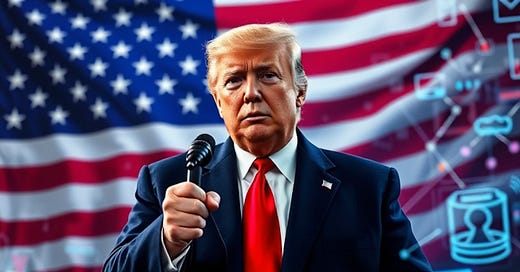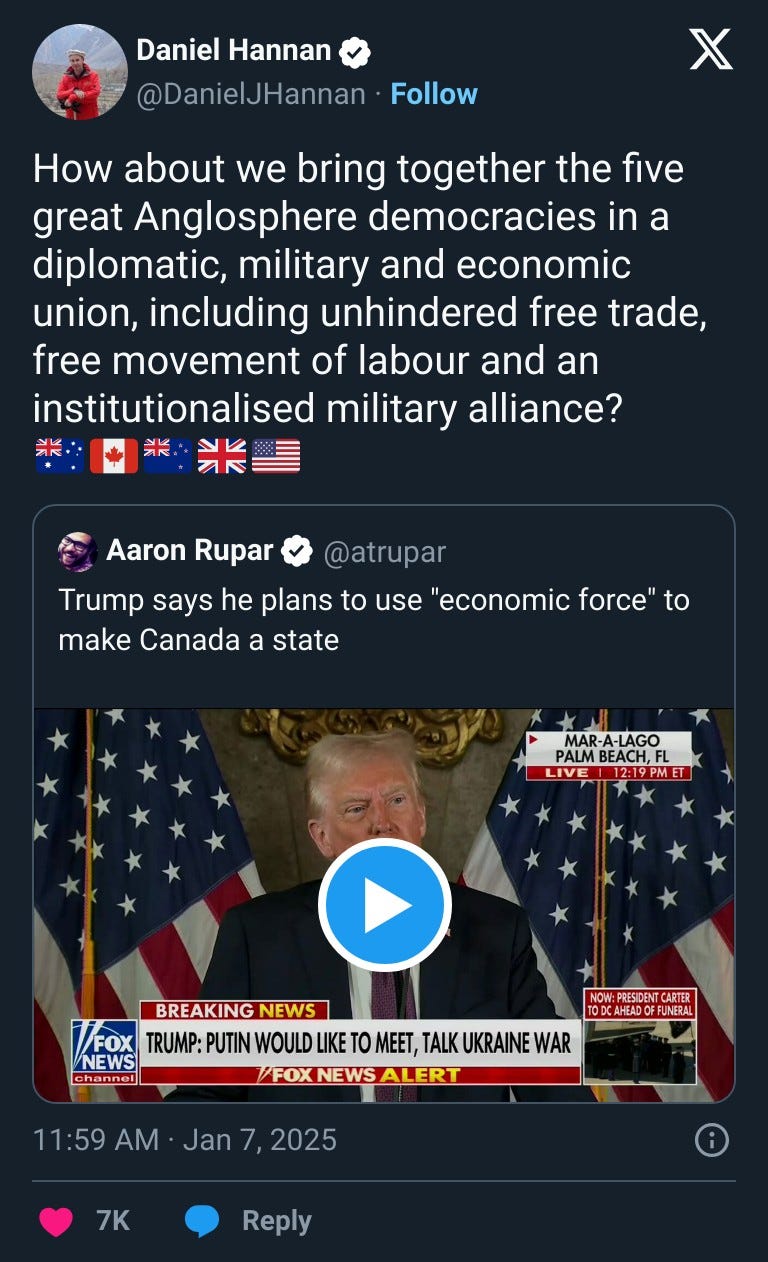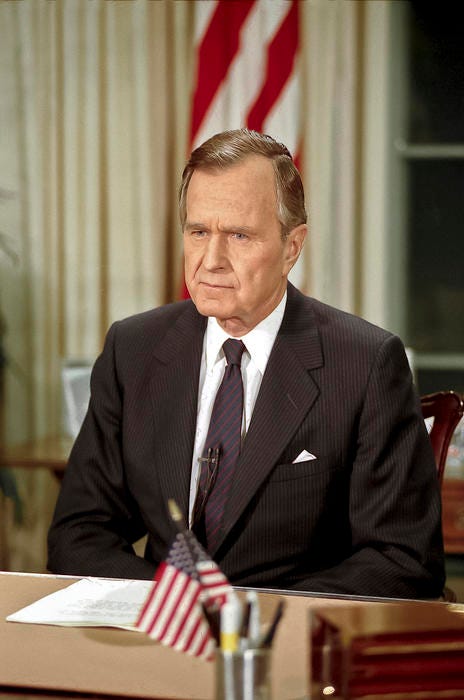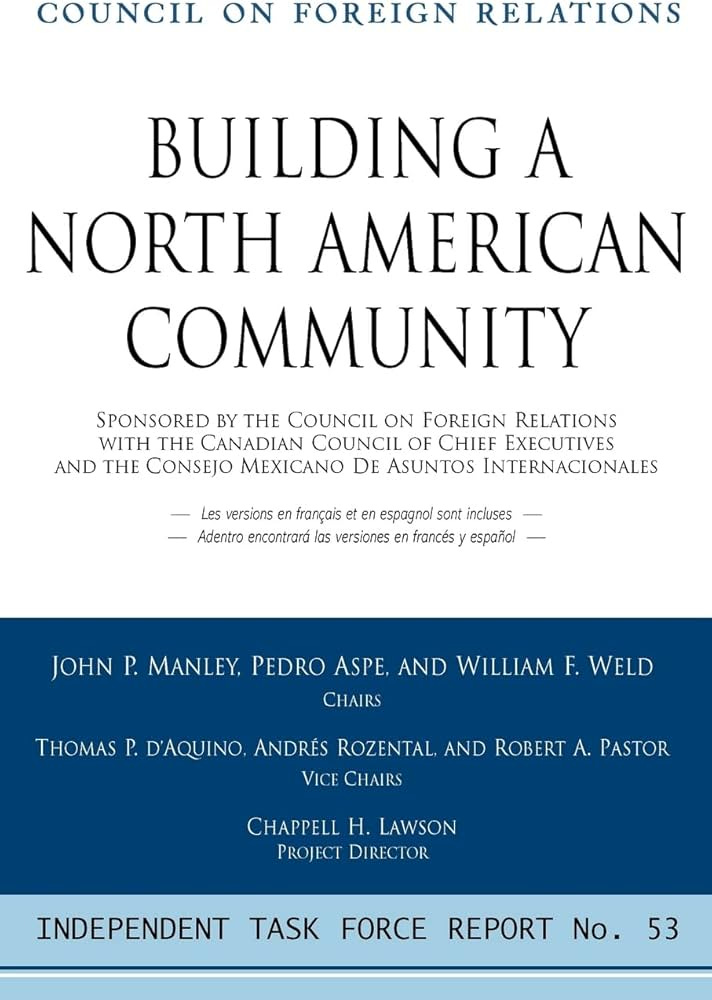Stars & Stripes Globalism: Donald Trump’s Plan for a New World Order
Guest Post by Stuart J. Hooper for Geopolitics & Empire
In just a few short days, Donald Trump, Elon Musk, and their most obsequious supporters attempted to shift from America First to Empire First in a shocking rebranding of globalism that would make transnational institutions like the World Economic Forum, Council on Foreign Relations, and Bilderberg Group proud. President-elect Trump’s recent statements on conquering Canada, taking over Greenland, acquiring the Panama Canal, and renaming the Gulf of Mexico represent a major betrayal of his supporters who were expecting an America First foreign policy program that curtailed the military industrial complex and ended foreign adventurism. This is nothing less than a globalist agenda wrapped in the stars and stripes that might dupe Trump supporters into supporting imperialism.
In response to Trump’s globalist messaging, one viral post on X pondered “how about we bring together the five great Anglosphere democracies in a diplomatic, military and economic union, including unhindered free trade, free movement of labour and an institutionalised military alliance,” to which Elon Musk replied “good idea” – both the initial message and the reply were collectively viewed over 20 million times. Canadian billionaire Kevin O’Leary revealed he met with the president-elect at Mar-a-Lago and urged him to “form a North American Union for greater strength. Period. Most Canadians would love to look at that opportunity without giving up their sovereignty.” Meanwhile, so-called conservative podcasters claimed that on a trip to Greenland they “were met by hundreds of people in MAGA hats…that love America and want to be part of America.”
None of these people seem to grasp the fact that this sort of global dominion is the furthest thing from a nationalist agenda, and President Biden was openly supporting the exact same ideas. Before he had even won the election, Biden wrote that he planned to “bring together the world’s democracies to strengthen our democratic institutions, honestly confront nations that are backsliding, and forge a common agenda…[by] forging a technological future that enables democratic societies to thrive and prosperity to be shared broadly.” This concept of an alliance of democracies sits firmly within the agenda of globalist institutions like the Atlantic Council that are seeking to move the idea “from concept to reality.” The stars and stripes globalists would do well to remember that entering transnational institutional arrangements will always confer power away from the nation state and into the hands of unelected elites beyond the realm of democratic control; precisely as it has done with entities like NATO and the EU. Any global alliance of democracies remains a globalist agenda – no matter who is articulating it.
And this globalist dream is significantly older than Biden or Trump. Cecil Rhodes, a British imperialist born in 1853, pushed for the establishment of a federal world government with Anglo-American leadership. Rhodes articulated the idea that Anglo-American civilization “was an instrument which unfolded all the best and highest capabilities of mankind” and sought to “create a worldwide secret group devoted to English ideals and to the Empire as the embodiment of these ideals.” The openly fascist regimes of the 1930s and 1940s each, in their own way, promoted similar ideas about world order, while author H.G. Wells in his works The Open Conspiracy and The New World Order also detailed plans for establishing a world government and overcoming resistance to its creation. Global domination is always framed as in everyone’s best interest, with or without the democratic overtones.
The League of Nations and United Nations served as modern institutionalized efforts at globalism but still lacked the geopolitical teeth of a proper world government. In the 1970s, the Club of Rome argued that more powerful international institutions were required to better manage the planet and developing nations “must act cooperatively” – kneeling to the whims of the developed, industrial world – if the planet was to survive.
Most notably, George H.W. Bush argued, both in a joint session of Congress and subsequently in a televised address to the nation, in favor of the creation of a New World Order under U.N. control:
“We have before us the opportunity to forge for ourselves and for future generations a new world order—a world where the rule of law, not the law of the jungle, governs the conduct of nations. When we are successful—and we will be—we have a real chance at this new world order, an order in which a credible United Nations can use its peacekeeping role to fulfill the promise and vision of the U.N.'s founders.”
Indeed, globalism is the abdication of American power and empowerment of transnational institutions and elites. Stars and stripes globalism will irreparably harm U.S. national power.
This remains true of slightly smaller scale globalist efforts to forge a North American Union between the United States, Canada, and Mexico. The Council on Foreign Relations has served as a key proponent of this idea, arguing that because “North America is vulnerable on several fronts,” to terrorism, crime, foreign economic competition, and uneven economic development, that a “more ambitious vision of a new community” is required. Literal concrete plans to establish a North American Union included the Trans-Texas Corridor, a now-canceled roadway project that sought to connect the three North American nations via a 50-year construction effort, costing upwards of $184 billion, which was innocently framed as a “project to improve the existing Texas transportation network and provide congestion relief for the State’s busy metropolitan areas.”
American elites have consistently pursued a globalist foreign policy agenda, with bipartisan support, since the end of World War II. This Power Elite, identified by political sociologist C. Wright Mills in 1956, sought to maintain its position of power and influence in world affairs by conspiring to produce and exploit endless emergencies in the Cold War. While in this permanent condition of crisis, the use of American military force abroad was consistently justifiable and led to interventions in Korea, Vietnam, and various other global theaters that collectively produced tens of thousands of American bodies and massive national debts for the American people. But tremendous profits, of both the financial and political varieties, were the fruit of the Cold War for the military industrial complex.
The Soviet Union eventually imploded, not due to the application of American military force but its own internal contradictions, ending the Cold War. But the American people were still denied a peace dividend as the War Machine reframed its global crusade towards “democracy promotion” under Clinton, the “War on Terror” under Bush, and “humanitarian intervention” under Obama. Trump may not have started any new wars, but he certainly did not end any either and maintained the globalized posture of American military force. Since then, Biden’s global debacles in Eastern Europe and the Middle East have brought the planet closer to World War III.
As such, it is hardly surprising that in polling from late 2024 only 13% of Republicans believed the U.S. had a responsibility to take a leading role in global affairs, while 57% of Republicans argued the U.S. needed to reduce its involvement abroad to focus on its problems at home. Indeed, when it comes to foreign policy 50% of all voters placed the U.S.-Mexico border as the nation’s primary problem. There is no need to look further afield than the border for a foreign policy issue worth solving.
Pursuing stars and stripes globalism will result in massive punishment of the Republican Party at the ballot box in the 2026 midterm elections, because these are precisely the kind of foreign distractions that will derail Trump’s domestic agenda. The military industrial complex, on the other hand, is certainly excited with this rebranding of globalism and ready to continue milking the American people for decades to come. An American First Foreign Policy is certainly possible, but is there any real political will to fulfill such an agenda?
Stuart J. Hooper is a PhD Candidate in International Politics at City St. George’s, University of London, and Senior Instructor of Political Science at Cameron University. He holds a BA from the Open University, MA in International Politics from City St. George’s, University of London, and MA in Political Science from the University of New Mexico. You can find his independent geopolitical analysis on X, YouTube, TikTok, and Facebook.










Withdrawing from the WHO as well as climate change agreements sounds good though.
I'm a UK citizen, and can think of nothing I'd like less than a closer union with the US. It's bad enough here with the lousy Labour sending billions Ukraine for the next 100 year, according to look our PM. Enough Brits have died in US promoted "military interventions" and costs to our Treasury with little in return as a result of the very unspecial "special relationship" without your president ordering us about. A state of the US, no thanks.